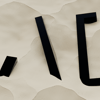Hello! My name is Julio Herrera from Via dei Velutini, Italia. I wanted to share with you some valuable insights on mastering PHP coding. Check out these 5 easy hacks for writing clean and efficient code. Happy coding!
PHP is a widely used programming language for creating dynamic web pages and web applications. It is known for its versatility and flexibility, making it a popular choice among developers. However, mastering PHP can sometimes be a daunting task, especially for beginners. But fear not, as there are a few easy hack steps that can help you write clean and efficient PHP code like a pro.
1. Use proper indentation and formatting:
One of the first steps to writing good PHP code is to ensure that your code is properly formatted and indented. This makes it easier to read and understand, and also helps to spot any errors more quickly. Use tabs or spaces to indent your code, and follow a consistent formatting style throughout your project.
2. Comment your code:
Another important step in writing good PHP code is to add comments to your code. Comments help to explain the purpose of your code, making it easier for others (and yourself) to understand what your code is doing. Use comments to describe the logic behind your code, or to document any complex functions or algorithms.
3. Use meaningful variable names:
When naming your variables, functions, and classes, make sure to use meaningful and descriptive names. This makes your code more readable and helps others understand what each piece of code is supposed to do. Avoid using vague or generic names like $x or $temp, and instead use names that reflect the purpose of the variable or function.
4. Avoid using global variables:
Global variables can make your code difficult to debug and maintain, as they can be accessed and modified from anywhere in your code. Instead, try to limit the use of global variables and use local variables within functions or classes whenever possible. This helps to encapsulate your code and prevents unintended side effects.
5. Use built-in functions and libraries:
PHP has a wide range of built-in functions and libraries that can help you accomplish common tasks more easily and efficiently. Before reinventing the wheel, check if there is already a built-in function or library that can help you achieve your goal. Using built-in functions can also improve the performance of your code and make it more maintainable in the long run.
By following these easy hack steps, you can write clean and efficient PHP code that is easy to read, understand, and maintain. Remember to practice regularly and keep learning new techniques and best practices to continuously improve your PHP coding skills. Happy coding!







Top comments (1)
Thank you for the article.
It would be great of you could include some examples of good vs bad code.
This will help re-enforce the points you.